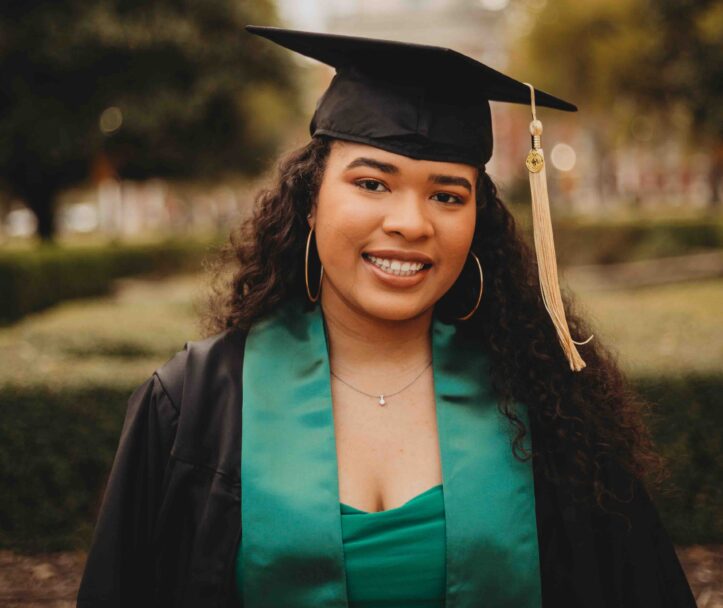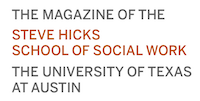
Micaela Jones was a senior in high school when she first encountered social work.
While serving as a teacher’s assistant in a sixth grade math class, Jones noticed that regardless of how engaging the lesson was, the students who were having difficulties at home were bringing those struggles into the classroom.
It was then that she decided to focus her education on how to help children at home so that they may thrive at school.
Jones originally thought that she wanted to work with Child Protective Services (CPS) because that was all she knew about the field. However, after starting the Bachelor of Social Work (BSW) program at Baylor University, she expanded her awareness and developed interests in research, macro systems, and advocacy.
Influences Along Her Path
Jones credits both her parents and professors for influencing her path, noting that her parents have served as her biggest supporters and taught her the importance of kindness and justice from a very early age. She also recognized support and mentorship of two former professors at Baylor, including “Black women who inspired me to break down barriers and strive for my dreams,” she said. Jones is also deeply appreciative of the Steve Hicks School of Social Work (SHS) for awarding her the Charles W. Laughton Endowered Scholarship to complete the MSSW program.
“I think SHS does a really amazing job of bringing in professors with great social work experience, knowledge, and skills. This is not only for classes, but for seminars and conversations,” she said. “It opens up opportunities for students, not only when it comes to networking, but having a broader understanding of what social work is.”
International Practicum Education in South Africa
Jones also feels fortunate to have been awarded the International Education Fee Scholarship to assist with the costs of her international final field placement in Cape Town, South Africa. Working at a local nonprofit called Ndifuna Ukwazi (“Dare to Know”), Jones is part of an interdisciplinary team, which she believes “is the best way to progress a social movement.” Her specific focus is popular education, and she works on curriculum for leadership training and youth development.
Her work in South Africa aligns with her passion for “equipping people with knowledge to empower themselves to make changes in their communities for the social justice issues they care about.”
What’s Next for Micaela
Jones may not know her exact next steps after graduation, but she is not short on ideas, thanks to the “limitless” possibilities that social work education can provide.
Working in the community relations department of a professional athletics team, government advocacy, research, and earning a Ph.D. are all possibilities that she is entertaining.
Whatever she chooses, Jones will certainly empower others – whether through increasing access to higher education, utilizing interventions that are funded for social justice, or imbuing them with the knowledge and skills to make a difference.
After all, as Jones said, “education is a powerful tool that can unlock so many opportunities” – including her own empowerment.
